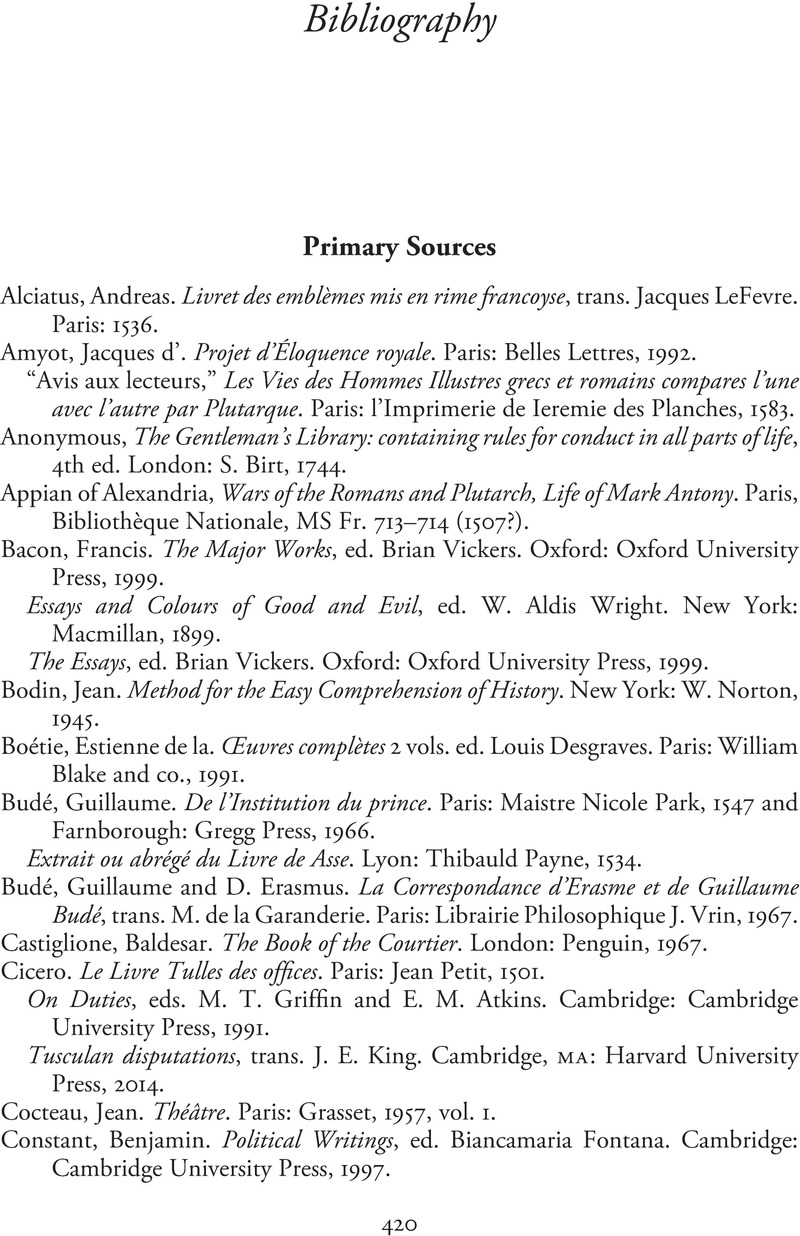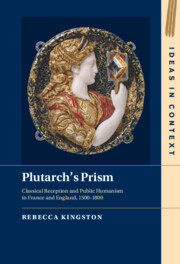Bibliography
Published online by Cambridge University Press: 22 September 2022
Summary

- Type
- Chapter
- Information
- Plutarch's PrismClassical Reception and Public Humanism in France and England, 1500–1800, pp. 420 - 437Publisher: Cambridge University PressPrint publication year: 2022

